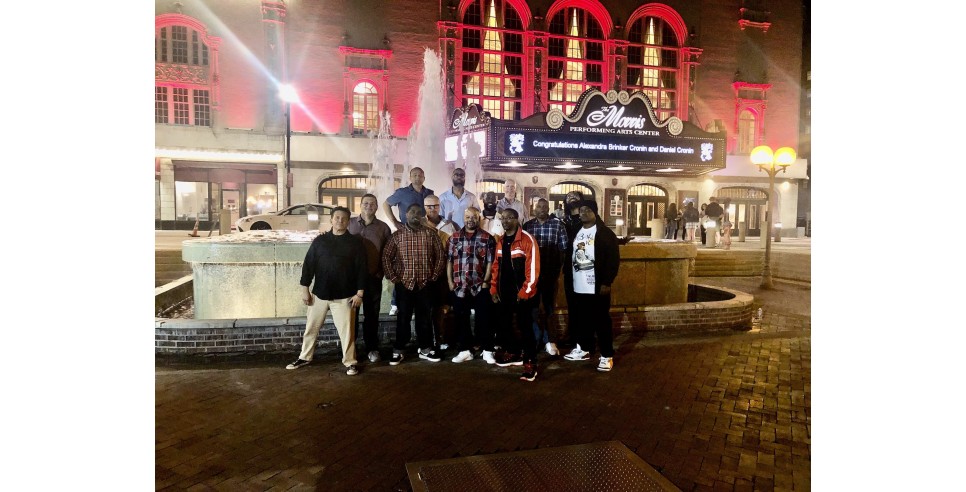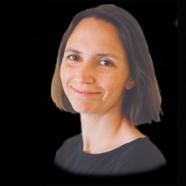
Charles Bowen has spent the last three decades working for the Indiana Department of Corrections. He started out his career by working in a supermax prison, where the most dangerous or disruptive convicts in the state were subjected to solitary confinement and kept in extremely restrictive conditions. In the mid-1990s, he was moved over to work with prisoners in the state’s work-release program, and later he went on to serve in the parole division.
Now he serves as Warden at the South Bend Community Re-Entry Center, overseeing the oldest existing state work-release program in Indiana. Each of the men in this program has been convicted of a felony or felonies – “for any crime you can imagine, except for sexual offenses,” Bowen said in a phone interview earlier this month. But in order to be admitted into this Re-Entry program, the men not only have to be in the final year of their sentence, they need to have demonstrated that they have worked hard on rehabilitating themselves – undergoing counseling for substance abuse or dysfunctional behaviors, getting vocational training, earning a GED or college degree, and exhibiting good conduct and focusing on serving others.
In addition, the South Bend Community Re-Entry Center takes the “community” part of its name to heart. The program prioritizes admitting men who, prior to their involvement in the criminal justice system, had lived in South Bend or the “doughnut” counties surrounding it.
“This has been my passion,” Bowen said. “It was always on my mind that I would come back here because there were a lot of ideas I wanted to implement. I’ve had a playbook in my head for 20 years.”
Bowen’s plan was to help the facility evolve beyond a conventional work release model to something more.
When the Re-Entry Center was established in 1971, the aim was to give men who were finishing up their prison sentences some job skills. They could even start back to work and begin earning a paycheck before they were officially released, the idea being that once they got out of prison, they wouldn’t be leaving empty-handed.
But Bowen had seen that sending fellows who had been locked up for a number of years back out into the world with a pocketful of money – but no real connections – didn’t necessarily result in good outcomes. He wanted to strengthen the ways the men could feel tied into the community.
For starters, he launched an “Iron Men” seminar – bringing in formerly incarcerated men who had gone through the program previously and transitioned successfully to life on “the outside.”
Bowen felt it was important for the residents who were soon to be released to get the advice and encouragement the Iron Men had to offer.
“Rather than me being the old man standing up here, we get experienced men who are saying, ‘You’re at the trailhead here – I’m out and I’m successful now and here’s how I found success.’”
Bowen also tapped the talents of Maria Kaczmarek, retired director of a local halfway house and, before that, an executive in the Girl Scouts of America organization. As the Re-Entry Center’s Community Involvement Assistant, Kaczmarek has helped the Center’s soon-to-exit residents get reacquainted with a society that has changed significantly since they last moved through it freely.
With arrangements through St. Vincent de Paul and Goodwill, she takes the men shopping for street clothes that they’ll be able to wear on the outside. She shows them how to use the self- checkout at the grocery store. She helps them summon up long-forgotten abilities like ordering from a menu at a restaurant.
And beyond teaching those basic life skills, she’s helped them think about how to engage in civic life.
Before the pandemic struck, Kaczmarek escorted some of her charges off to the South Bend Civic Theatre to help build sets for stage plays.
Some of the Re-Entry Center residents even auditioned for and won speaking parts in the Theatre’s 2019 production of “A Few Good Men.”
Bowen says she has played a crucial role in the men’s progress, but Kaczmarek shrugged off the Warden’s compliment with modesty and hearkened back to earlier in her career. “It’s kind of like leading a Girl Scout troop,” she confided.
Now post-pandemic, another important partnership has blossomed between the Re-Entry Center and the South Bend Symphony Orchestra after Warden Bowen bumped into Dr. Marvin Curtis at a local Rotary meeting. Curtis had retired recently as Dean of the School of the Arts at Indiana University’s South Bend campus and now serves on the SBSO board. The 2020 murder of George Floyd had served as a wake-up call to the Symphony to be more representative of the entire community, and as a Black man, Curtis has been key in promoting the Symphony’s Diversity/Equity/Inclusion work.
The conversation between Bowen and Curtis at that Rotary meeting led to an invitation to bring some of the Re-Entry Center residents to some upcoming concerts.
This new initiative yielded results beyond anyone’s expectations. Most of the men had never been to a Symphony concert before. Many had never been in a concert hall as grand as the Morris Performing Arts Center. They marveled at the way the musicians responded to the conductor’s direction. They loved the way they were enveloped by the Symphony’s sound.
They weren’t necessarily familiar with the powerful music of classical composers like Beethoven – music powerful enough to elicit tears or joy. But perhaps even more meaningful to them was the chance to hear the work of composers who are alive today. At a recent SBSO concert, a piece by Indiana composer Michael Schelle had direct relevance to their own experience: “Summit at San Quentin,” was inspired by the San Quentin State Prison’s Jazz Band.
Invariably, after attending these concerts, residents returned to the Re-Entry Center feeling inspired. Uplifted. Even peaceful.
A story in the South Bend Tribune reported that one of the residents marveled at how the cacophonous warm-up playing of the musicians ahead of the concert was, at the tap of the conductor’s baton, transformed into beautiful music. It was a way for him to think about how people could turn chaos into harmony.
Another resident said that if he had been given a chance to see this type of performance when he was a kid, he might have been inspired to pursue something like that, but the only role models he saw in his neighborhood while growing up were drug dealers.
So the Re-Entry Center residents approached the Warden with a proposal. They wanted to pool together their money to send local kids from disadvantaged neighborhoods to an upcoming concert. Bowen gave the OK, and within a matter of days, the residents raised over $1500 to buy tickets. Then they ponied up more money on top of that to throw in a pizza party. At that point, the Rotary Club came through with enough door prizes to give one to every child who attended.
On an unseasonably cold night earlier this spring, 60 kids with parents in tow showed up at the Morris Performing Arts Center to take advantage of the Re-Entry residents’ offer. Beethoven’s famous Symphony #9 was on the program, along with more recent pieces by American composers Mason Bates and Carter Pann.
Sarah Perschbacher, SBSO’s marketing director, said that the feedback they got from kids attending the concert may have been unvarnished, but it was overwhelmingly positive.
“One fourth grader had never been to the symphony before and said he really hadn’t wanted to come because he didn’t like classical music. He was just there for the pizza party.
“But at the end of the concert he said he ‘really, really’ liked it – and that the music was as good as the pizza!”
Both the Re-Entry Center and the Symphony have expressed the intention that this partnership is not a one-off – there will be more to follow. “We want to help make everybody who comes into the hall feel comfortable and welcome,” Perschbacher emphasized.
And this definitely fits into Warden Bowen’s playbook. “The goal has been to open the doors and find how these men can connect to the community,” he said. “What do they want to do to pay it forward, to give back – what do they want their role to be?”
Men who once had been convicted of felonies are transforming into agents for positive change. If they can do that, so can the rest of us.
Barbara Lloyd McMichael is a freelance writer living in the Pacific Northwest.









